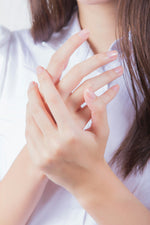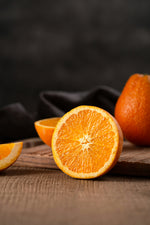Learn the best skincare routine for acne-prone skin in Pakistan. Explore easy treatments, prevention tips, and affordable products for clear skin.
What is Acne?
Acne is a common skin condition that happens when the pores of your skin get clogged with excess oil, dead skin cells, or bacteria. This blockage leads to pimples, blackheads, whiteheads, and sometimes painful red bumps.
Why is Acne a Common Concern in Pakistan?
Acne is one of the most widespread skin concerns in Pakistan, and there are several reasons why breakouts are more common here:
-
Climate & Weather: Pakistan has a hot and humid climate for most of the year. Heat and sweat increase oil (sebum) production, which clogs pores and causes pimples.
-
Pollution: Dust and air pollution in big cities like Karachi, Lahore, and Islamabad settle on the skin, mixing with oil and bacteria, leading to frequent breakouts.
-
Diet Habits: Many people in Pakistan eat oily, fried, and spicy foods on a daily basis. Such foods can trigger acne and make existing pimples worse.
-
Stress & Lifestyle: Academic pressure, work stress, lack of sleep, and irregular routines are also common causes of acne in both teenagers and adults.
Who Struggles with Acne: Teenagers & Adults
Acne isn’t just a teenage problem—it can happen at any age. In Pakistan, both teens and adults deal with it, but for different reasons.
-
Teenagers: Hormonal changes during puberty make the skin more oily, which often leads to pimples, blackheads, and whiteheads.
-
Adults: Many adults get acne because of stress, hormones, pollution, or diet. It usually shows up on the cheeks, chin, and jawline, and can sometimes be harder to manage than teenage acne.
Let’s Understand Acne-Prone Skin
People with acne-prone skin often get frequent breakouts. Here’s what you need to know
Main Cause of Acne
Too much oil: Extra oil clogs the pores.
Bacteria: Makes pimples red and swollen.
Hormonal changes: Puberty, stress, or periods can trigger acne.
Daily habits: Poor diet, lack of sleep, or stress can make it worse.
Types of Acne
Whiteheads: Small spots with a white top.
Blackheads: Dark spots caused by open pores.
Pimples: Red and painful bumps.
Cystic acne: Deep, large, and painful breakouts.
Why Acne is Common in Pakistan
Hot weather & humidity: Increases sweat and oil.
Spicy and oily food: Can trigger breakouts.
Pollution & dust: Blocks pores and irritates skin.
Wrong skincare: Over-washing, harsh scrubs, or skipping sunscreen.
Daily Skincare Routine for Acne-Prone Skin
A simple routine can keep acne under control. Here’s how to care for your skin with products from The Petals Beauty:
| Time | Step | What to use | Notes / Tips |
|---|---|---|---|
| Morning | 1. Cleanse | Use something gentle. If your skin tolerates, you could use the Whitening Cleanser Mousse (but since it has glycolic acid, may be strong for AM depending on your skin). Alternatively use a mild cleanser (not listed here). | If using the mousse in morning, follow with sunscreen always. |
| 2. Tone | Use Tea Tree Toner after cleansing. Helps reduce oil, bacteria. | If skin feels dry, maybe skip toner in AM or use very sparingly. | |
| 3. Moisturize | Use Luminous HydraGel — lightweight, hydrating, oil-free. | Good for oil control yet moisture. | |
| 4. Sun Protection | Apply a broad-spectrum sunscreen SPF 30 or higher. | Essential, especially with brighteners and acids. | |
| Evening | 1. Double clean (if wearing makeup / sunscreen) | First clean to remove sunscreen / makeup, second with more treatment cleanser. Use Skin Brightening Soap (kojic acid) or Whitening Cleanser Mousse (on nights when not exfoliating too aggressively). | Be gentle, avoid scrubbing too hard. |
| 2. Tone | Tea Tree Toner. Helps disinfect and prep skin. | ||
| 3. Treatment / Brighten / Repair | Use Miracle C Cream at night. This gives Vitamin C, Niacinamide, E to help with acne scars, inflammation. | If your skin is sensitive, start with every other night. | |
| 4. Moisturize / Hydrate | Again Luminous HydraGel if skin feels like it needs moisture, or layer a richer moisturizer if your skin is very dry. | ||
| 5. Spot Treatment (if needed) | If you have active pimples, you could supplement with a spot treatment (tea tree oil, benzoyl peroxide, salicylic acid) if you have access to one. Not listed among these PTB items. |
Skincare Mistakes to Avoid
Many people with acne prone skin make mistakes like over-washing the face, using harsh scrubs, skipping sunscreen, or applying heavy creams. These habits can damage the skin barrier and make acne worse. Stick to gentle products and a simple routine for best results.
Recommended Products For Skin Care in Pakistan
Good skincare doesn’t have to be complicated. In Pakistan, popular options for acne-prone skin include CeraVe Foaming Cleanser, Neutrogena Hydro Boost Gel, Skin Aqua UV Gel Sunscreen, and The Ordinary Niacinamide Serum. All of these are lightweight, non-comedogenic, and safe for oily skin.
Lifestyle & Home Remedies for Acne Prevention
Clear skin needs good habits too drink water, eat less oily food, sleep well, manage stress, and keep things clean like pillowcases and hands.
When to See a Dermatologist
If your acne is painful, severe, or leaving scars, see a dermatologist. They can help when skincare products aren’t enough.
Conclusion
Acne is common in Pakistan, but with the right skincare routine, trusted products, and healthy lifestyle changes, it can be managed. Stay consistent, avoid common mistakes, and seek expert advice when needed to achieve clearer, healthier skin.
Additional Tips
-
Always patch test new product for 24-48 hours on a small skin area (jawline or behind ear).
-
Be gentle: avoid harsh scrubs, strong exfoliants on same night with acids.
-
Use sunscreen, especially when using acids, brighteners, kojic acid, vitamin C. UV undoes a lot of the work & can worsen hyperpigmentation.
-
Give products time — acne / scars / discoloration won’t clear up overnight. Usually 4-8 weeks minimum to see visible improvement.
-
Don’t over-use too many active ingredients at once; that can irritate, lead to more acne.
FAQs About Acne-Prone Skin in Pakistan
Q1. Which products from The Petals Beauty are best for acne?
The Tea Tree Toner and Luminous HydraGel are the most effective for acne. Tea Tree Toner helps control excess oil and bacteria, while HydraGel hydrates without clogging pores. The Skin Brightening Soap with Kojic Acid and Whitening Cleanser Mousse can also help reduce acne scars and prevent breakouts.
Q2. Can I use the Whitening Cleanser Mousse daily if I have acne?
It contains glycolic acid (an AHA), so daily use may be too strong for sensitive or acne-prone skin. Start with 2–3 times a week at night and adjust depending on your skin’s tolerance. Always follow with sunscreen the next morning.
Q3. Is the Tea Tree Toner safe for oily and acne-prone skin?
Yes. Tea tree is naturally antibacterial and helps control sebum, making it excellent for oily and acne-prone skin. If your skin feels dry, use it only once a day or every other day.
Q4. How can I fade acne scars using The Petals Beauty products?
Use Miracle C Cream (Vitamin C + B3 + E) at night to brighten skin and fade scars. Pair it with Skin Brightening Soap (Kojic Acid) 2–3 times per week for faster results. Consistency is key — visible improvements usually take 4–8 weeks.
Q5. Can I use Luminous HydraGel if I have oily skin?
Yes. Luminous HydraGel is lightweight, oil-free, and contains niacinamide and witch hazel to regulate sebum production while keeping your skin hydrated. It’s ideal for acne-prone and oily skin types.
Q6. Do I need sunscreen while following this acne routine?
Absolutely. Products with glycolic acid, kojic acid, and vitamin C can make your skin more sensitive to sunlight. Always use a broad-spectrum sunscreen during the day to prevent dark spots and further breakouts.
Q7. Can I combine Vitamin C Cream with Tea Tree Toner?
Yes, you can. Apply Tea Tree Toner after cleansing, then follow with Miracle C Cream in the evening. If your skin feels sensitive, alternate them on different nights.
Q8. How long will it take to see results with this routine?
Mild acne can improve in 2–4 weeks with consistent use. Acne scars and hyperpigmentation may take 6–8 weeks or longer to fade. Patience and consistency are important.
Q9. Can sensitive skin use these acne products?
Yes, but start slowly. Use the HydraGel daily, introduce the Toner every other day, and limit exfoliating cleansers (like Whitening Cleanser Mousse) to once or twice weekly until your skin adjusts.
Q10. Can I use the Anti-Acne Bundle alone for my acne routine?
Yes. The Anti-Acne Bundle (Tea Tree Toner + Luminous HydraGel) is a simple, effective routine for beginners. For added results on scars and pigmentation, you can include Miracle C Cream and Skin Brightening Soap.







